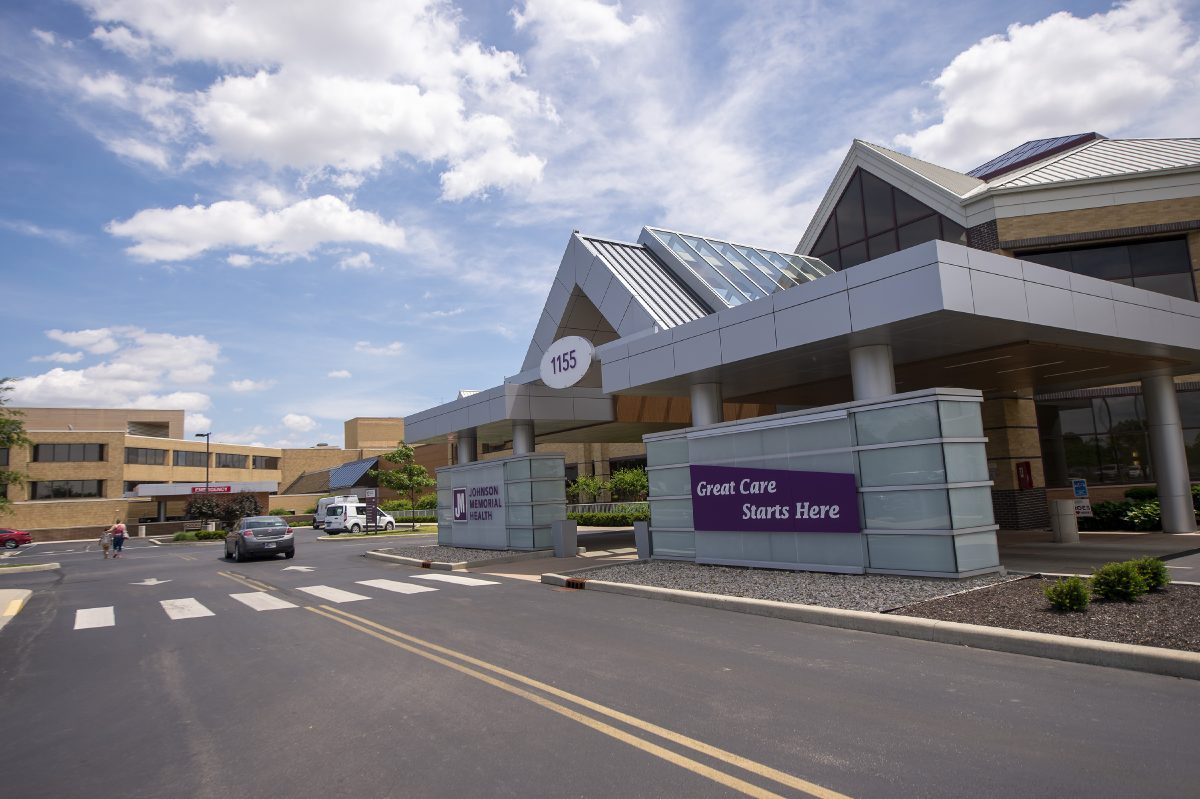The number of admitted COVID-19 patients is the lowest hospitals have seen in months, but local health care officials warn this does not mean the pandemic is over.
COVID-19 patients at three area hospitals fluctuated in the single digits last week, which was the lowest number of patients they have seen since March, when the virus first made its way to central Indiana.
Since then, thousands of Hoosiers have been diagnosed with the disease that is caused by the novel coronavirus since, and more than 3,000 have died across the state, including 114 in Johnson County, as of this weekend. These past four months have been what Dr. Christopher Doehring, vice president of medical affairs at Franciscan Health, called a roller coaster for health care workers. But handling COVID-19 has become part of their new normal.
"The first few weeks, it was fast and furious, and it was exhausting," Doehring said. "By now, folks are kind of returning back to their normal duties and normal patients."
[sc:text-divider text-divider-title="Story continues below gallery" ]
Click here to purchase photos from this galleryIndiana placed several stay-at-home orders from the end of March until May to combat the spread of the virus and to ensure the health care system would not be overwhelmed. Since May, the state has gradually started reopening businesses and allowing more gatherings as part of the state’s Back on Track Indiana plan.
Dr. David Dunkle, president and CEO of Johnson Memorial Health, said the low number of patients at the hospital with COVID-19 may be due to increased social distancing, but that is likely not the only factor that’s contributing.
"It’s very hard to say the decrease in cases is just due to social distancing," Dunkle said. "These coronaviruses—as a whole—tend to lose steam in the summer."
Since coronaviruses are known to lose traction in warmer weather, Dunkle doesn’t expect to see a huge uptick in cases this summer as the state continues to relax social distancing restrictions, he said.
Howver, he and other health care professionals are concerned that the public has seemed to let their guards down, and many are taking less precautions now while in public.
"Continue to be vigilant; do not let your guard down," Dunkle said. "People have to remember, the coronavirus that causes COVID-19 is still highly contagious."
By the time September rolls around and flu season starts up again, health care officials are going to once again have a heightened urgency taking care of flu and COVID-19 patients, said Dr. Randy Lee, physician of internal medicine and an executive at Community Health Network.
Even with a possible vaccine in the works, this particular virus is not going away anytime soon, he said.
"It won’t be a couple months; it will be a couple years," Lee said. "We know we’re going to see peaks and valleys of COVID-19."
Masks should still be worn in public, all three health care officials said. Masks don’t necessarily protect the person wearing it, but it can protect others around them, Dunkle said.
"There is no debate. If two people are wearing a mask, even if one of them has COVID-19, the chances of catching the virus are incredibly slim," Dunkle said.
Nonetheless, hospitals are prepared for another spike in patients, if and when that does happen. Taking care of COVID-19 patients while also continuing business as usual, including patients with other illnesses and elective surgeries, is going to be the normal from now on, Lee said.
"Something we’ve dealt with from March 6 on is this element of fear," Lee said. "We have not had our health care co-workers abandoning ship at any point. We’ve had people stepping up the plate … taking on jobs they never would have before."
Now that testing has become widely available and turnaround time for results has improved significantly, hospitals can manage cases more easily. Most results come back the same day or within 48 hours. Johnson Memorial has access to a rapid test that returns results in as little as 15 minutes.
"That’s been especially useful to utilize in the emergency department so we can properly segregate those patients to the COVID unit," Dunkle said.
There is a higher demand for testing now, though, Doehring said. Any possible COVID-19 patients need to be tested; anyone coming in for a surgery needs to be tested; and some companies are also asking that all employees be tested. Doehring worries about maintaining a solid supply of testing in the coming months due to this, he said.
Supplies of personal protective equipment (PPE) are also in good shape at the three hospitals. Community Health is hoping to gather at least 180 days worth of extra supplies in case a supplier does run out, Lee said. All three hospitals accept donations of PPE, and guidelines for those can be found on each of the hospitals’ websites.
And as the pandemic continues, health care officials urge the public to continue to take it seriously.
"I don’t think you can be too cautious," Lee said. "We’re all at risk … why anybody would be flipping (out) about taking precautions is beyond me."





